|
Books Should Be Free Loyal Books Free Public Domain Audiobooks & eBook Downloads |
|
|
Books Should Be Free Loyal Books Free Public Domain Audiobooks & eBook Downloads |
|
Plays |
|---|
|
Book type:
Sort by:
View by:
|
By: Thomas Love Peacock (1785-1866) | |
|---|---|
 Headlong Hall
Headlong Hall
Headlong Hall is the first novel by Thomas Love Peacock, published in 1815 (dated 1816). As in his later novel Crotchet Castle, Peacock assembles a group of eccentrics, each with a single monomaniacal obsession, and derives humor and social satire from their various interactions and conversations. The setting is the country estate of Squire Harry Headlong Ap-Rhaiader, Esq. in Wales. | |
By: Unknown (495? BC - 406 BC) | |
|---|---|
 Oedipus King of Thebes Translated into English Rhyming Verse with Explanatory Notes
Oedipus King of Thebes Translated into English Rhyming Verse with Explanatory Notes
| |
By: William Shakespeare (1564-1616) | |
|---|---|
 Shakespearean Dialogues Collection
Shakespearean Dialogues Collection
This is a collection of scenes from Shakespeare's plays, mainly comprising dialogues between two characters. The theme for this collection is "Wooing, Wedding, and Repenting" (inspired by a line from Much Ado About Nothing). | |
By: Moliere (1622-1673) | |
|---|---|
 The Imaginary Invalid
The Imaginary Invalid
The Imaginary Invalid is a three-act comédie-ballet by the French playwright Molière. It was first performed in 1673 and was the last work he wrote. The plot centers around Argan, the 'imaginary invalid' who is completely dependent on his doctors and wants to marry his daughter to a doctor against her will, so that he will always have medical care freely available to him. In an ironic twist of fate, Molière collapsed during his fourth performance as Argan on 17 February and died soon after. | |
By: Molière (1622-1673) | |
|---|---|
 Miser
Miser
The Miser is a comedy of manners about a rich moneylender named Harpagon. His feisty children long to escape from his penny-pinching household and marry their respective lovers. Although the 17th-century French upper classes presumably objected to the play's message, it is less savage and somewhat less realistic than Molière's earlier play, Tartuffe, which attracted a storm of criticism on its first performance. | |
By: Thomas Middleton (1580-1627) | |
|---|---|
 Women Beware Women
Women Beware Women
Thomas Middleton's masterful 17th century tragedy is packed with adultery, incest, intrigue, revenge, and inventive methods for murder. Leantio elopes with Bianca against her family's wishes and tries to hide her in the house he shares with his widowed mother. Yet the Duke sees Bianca at the window and is powerfully attracted to her, threatening Leantio's security. Livia, a wealthy widow, delights in intrigue, aiding the Duke to satisfy his desires with Bianca, and bringing together her brother Hippolito with her niece Isabella, despite their familial relationship... | |
By: August Strindberg (1849-1912) | |
|---|---|
 The Ghost Sonata
The Ghost Sonata
The Ghost Sonata (Spoksonaten) is a play in three acts by Swedish playwright August Strindberg. Written in 1907, it was first produced at Strindberg's Intimate Theatre in Stockholm on 21 January 1908... The Ghost Sonata is a key text in the development of modernist drama and a vivid example of a chamber play. In it, Strindberg creates a world in which ghosts walk in bright daylight, a beautiful woman is transformed into a mummy and lives in the closet, and the household cook sucks all the nourishment out of the food before she serves it to her masters... | |
By: Frank Wedekind | |
|---|---|
 The Awakening of Spring
The Awakening of Spring
The Awakening of Spring is the German dramatist Frank Wedekind's first major play and a seminal work in the modern history of theatre. It is the source material for the contemporary rock musical Spring Awakening. The play criticises the sexually-oppressive culture of fin de siècle Germany and offers a vivid dramatisation of the erotic fantasies that it breeds. Due to the nature of its content, the play has often been banned. | |
By: Aeschylus (c. 525 BCE - c. 456 BCE) | |
|---|---|
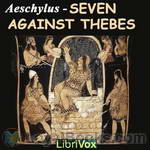 Seven Against Thebes
Seven Against Thebes
In this, the only extant tragedy from Aeschylus' trilogy about the House of Oedipus, Thebes is under siege from Polynices, a former prince of Thebes. After King Oedipus left his city and cursed the princes, Polynices and his brother, Eteocles, decided to rule alternately, switching at the end of every year. However, at the end of his year as king, Eteocles refused to turn power over to his brother and exiled him, fulfilling his father's curse that the two brothers could not rule peacefully. In the action of the play, Polynices and a group of Argive soldiers are attacking Thebes so that he can take his place as ruler... | |
By: Myrtle Reed (1874-1911) | |
|---|---|
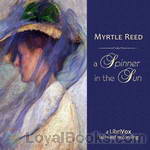 A Spinner in the Sun (dramatic reading)
A Spinner in the Sun (dramatic reading)
Myrtle Reed may always be depended upon to write a story in which poetry, charm, tenderness and humor are combined into a clever and entertaining book. Her characters are delightful and she always displays a quaint humor of expression and a quiet feeling of pathos which give a touch of active realism to all her writings. In "A Spinner in the Sun" she tells an old-fashioned love story, of a veiled lady who lives in solitude and whose features her neighbors have never seen. There is a mystery at the heart of the book that throws over it the glamour of romance. | |
By: Henry Fielding | |
|---|---|
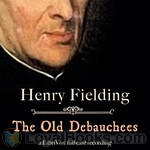 The Old Debauchees
The Old Debauchees
Young Laroon plans to marry Isabel, but Father Martin manipulates Isabel's father, Jourdain, in order to seduce Isabel. However, other characters, including both of the Laroons, try to manipulate Jourdain for their own ends; they accomplish it through disguising themselves as priests and using his guilt to convince him of what they say. As Father Martin pursues Isabel, she is clever enough to realize what is happening and plans her own trap. After catching him and exposing his lust, Father Martin is set to be punished. | |
By: Euripides (484 BC - 406 BC) | |
|---|---|
 Orestes
Orestes
In accordance with the advice of the god Apollo, Orestes has killed his mother Clytemnestra to avenge the death of his father Agamemnon at her hands. Despite Apollo’s earlier prophecy, Orestes finds himself tormented by Erinyes or Furies to the blood guilt stemming from his matricide. The only person capable of calming Orestes down from his madness is his sister Electra. To complicate matters further, a leading political faction of Argos wants to put Orestes to death for the murder. Orestes’ only hope to save his life lies in his uncle Menelaus, who has returned with Helen after spending ten years in Troy and several more years amassing wealth in Egypt... | |
By: Unknown (446? BC - 385? BC) | |
|---|---|
 The Birds
The Birds
| |
By: Stanley Houghton (1881-1913) | |
|---|---|
 Hindle Wakes (with accompanying essay)
Hindle Wakes (with accompanying essay)
Alan Jeffcote, son of Nat Hawthorn, Hindle's richest factory owner, meets Fanny Hawthorn, daughter of Nat's 'slasher' and oldest friend, in Blackpool and the two go off for what they believe to be secret fling in Llandudno. But after the death of Fanny's friend, Mary, in a pleasure boat accident at Blackpool the secret is revealed and the the two families are thrown into disarray. The leading light of the so-called Manchester School of realist dramatists, Stanley Houghton wrote Hindle Wakes in 1911 and it was a hit both in Mrs... | |
By: John Fletcher (1579-1625) | |
|---|---|
 The Woman's Prize, or The Tamer Tamed
The Woman's Prize, or The Tamer Tamed
John Fletcher's comedy (probably written and performed around 1611) is a sequel to Shakespeare's The Taming of the Shrew, in which, as the title suggests, the tamer will be tamed. Petruchio, the shrew-tamer, has been widowed, and marries a second wife, Maria, a "chaste witty lady." At the instigation of her cousin Bianca, and with the fellowship of her sister Livia, Maria decides to go on strike for equal rights, refusing to behave as a proper 17th century wife. Fletcher's play addresses the issue of men and women's roles within marriage, a controversial issue for his day. | |
By: Aeschylus (c. 525/524-456/455 BC) | |
|---|---|
 Prometheus Bound (Buckley Translation)
Prometheus Bound (Buckley Translation)
"Prometheus Bound" is the only complete tragedy of the Prometheia trilogy, traditionally assumed to be the work of Aeschylus. Jupiter has turned against Prometheus for protecting mankind and has ordered him to be chained to a rock. But Prometheus is comforted by his knowledge of a way to bring about the downfall of Jupiter. | |
By: Aristophanes (446-389 BCE) | |
|---|---|
 Frogs
Frogs
Athens is in a sorry state of affairs. The great tragedian, Euripides, is dead, and Dionysus, the god of the theater, has to listen to third-rate poetry. So, he determines to pack his belongings onto his trusty slave, Xanthias, and journey to the underworld to bring back Euripides! Hi-jinks ensue. | |
By: Nahum Tate (1652-1715) | |
|---|---|
 The History of King Lear
The History of King Lear
The History of King Lear is an adaptation by Nahum Tate of William Shakespeare's King Lear. It first appeared in 1681, some seventy-five years after Shakespeare's version, and is believed to have replaced Shakespeare's version on the English stage in whole or in part until 1838. Unlike Shakespeare's tragedy, Tate's play has a happy ending, with Lear regaining his throne, Cordelia marrying Edgar, and Edgar joyfully declaring that "truth and virtue shall at last succeed." Regarded as a tragicomedy, the play has five acts, as does Shakespeare's, although the number of scenes is different, and the text is about eight hundred lines shorter than Shakespeare's... | |
By: Gordon Bottomley (1874-1948) | |
|---|---|
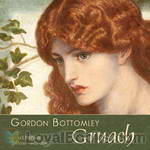 Gruach
Gruach
Gordon Bottomley's verse drama in two scenes is a prequel to Shakespeare's Macbeth. He provides Lady Macbeth with a name - Gruach - and imagines her family life and how she meets Macbeth. | |
By: Unknown (495? BC - 406 BC) | |
|---|---|
 Book of illustrations : ancient tragedy
Book of illustrations : ancient tragedy
| |
By: William Shakespeare (1554-1616) | |
|---|---|
 Two Noble Kinsmen
Two Noble Kinsmen
The Two Noble Kinsmen is a Jacobean tragicomedy co-written by William Shakespeare and John Fletcher, first published in 1634. Set in ancient Greece during a war between Athens and Thebes, the narrative follows the title characters, Palamon and Arcite, noble youths whose friendship is destroyed by their mutual love for the beautiful Emilia. The subplot deals with the love and eventual madness of the Gaoler's Daughter, who falls hopelessly in love with Palamon. The play is based on "The Knight's Tale" by Chaucer, but also has echoes of Shakespeare's A Midsummer Night's Dream, as two of the major characters are Theseus and Hippolyta, who also appear in the earlier play. | |
By: Unknown (446? BC - 385? BC) | |
|---|---|
 The Acharnians
The Acharnians
| |
By: William Shakespeare (1554-1616) | |
|---|---|
 Reign of King Edward the Third
Reign of King Edward the Third
| |
By: Various | |
|---|---|
 Washington Square Plays
Washington Square Plays
| |
By: Unknown (1622-1673) | |
|---|---|
 The Flying Doctor (Le Médecin Volant)
The Flying Doctor (Le Médecin Volant)
| |
 The Trojan Women of Euripides
The Trojan Women of Euripides
| |
 Sir John Oldcastle
Sir John Oldcastle
| |
 The Jealousy of le Barbouillé (La Jalousie du Barbouillé)
The Jealousy of le Barbouillé (La Jalousie du Barbouillé)
| |
By: Anonymous | |
|---|---|
 The Interlude of Wealth and Health
The Interlude of Wealth and Health
| |
By: Unknown (1564-1616) | |
|---|---|
 Fair Em
Fair Em
| |
 Sword and crozier, drama in five acts
Sword and crozier, drama in five acts
| |
By: BS Murthy | |
|---|---|
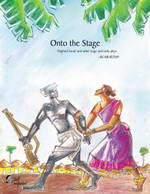 Onto the Stage - Slighted Souls and other stage and radio plays
Onto the Stage - Slighted Souls and other stage and radio plays
Voice Over: Under the British Raj in India, the self-indulging Nizams of Hyderabad abdicated the administration of their vast principality to doralu, the village heads, letting them turn the areas under their domain into their personal fiefdoms. While the successive Nizams were obsessed with building palaces and acquiring jewelry, the village heads succeeded in ushering in an oppressive era of tyrannical order. Acting as loose cannon from their palatial houses called gadis, the doralu succeeded in foisting an inimical feudal order upon the downtrodden dalits... | |